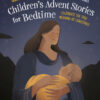Hi! Maureen Pratt here with my monthly blog. A friend of mine and I recently got into an interesting discussion about how much of the programming on television and many of today’s movies contain fundamentally unlikeable characters who do some pretty awful things. And yet, they draw an audience, sometimes rave reviews, and, sometimes, too, awards and accolades.
As a reporter, I’ve had to write stories about subjects that I don’t necessarily "resonate" with. I’ve also had to interview people with whom I personally disagree or who are not exactly the kind of people I’d want to share a meal with. But, that’s the life of a reporter; news and newsmakers come in all shapes, sizes and moral convictions (or lack thereof), and a good reporter is able to get to the truth of a piece without inserting personal feelings or bias (not to say we don’t have them!)
But what about those stories we aren’t professionally obligated to tell, but rather choose to tell or are led to tell by the Spirit? Do we have to like all of our characters, down to the lowliest criminal or town gossip or unsaved soul? Are we required to give soft edges to all inhabitants of our stories so that they will be palatable to us (read: so we’ll be able to spend long hours with them through the creative process) and our readers? What about the really evil-doers in some books? If we’re writing stories including those kinds of characters, do we have to like them in order to write them well?
For non-faith-based authors, the question can be answered rather succinctly: Characters don’t have to be likeable in order for them to "work" in a story, but they do have to be attractive in some way in order for people to want to watch them. This attraction can be extremely superficial (a very good-looking man or woman as the villain, for example). Or, it can be character-deep, drawing the audience on an exploration of what the character’s (often twisted) thinking/experience/perspective is and how that propels him or her to act as he or she does. Unfortunately, unlikeable characters often glamorize wrongdoing – the subject of another blog – and understanding why someone does something nefarious is often mistaken for condoning it.
For the faith-based author, the question of liking our characters takes on a very different color. We believe in God’s love for each of us and the power of redemption available to all. Our characters might do very evil things, but God is more powerful and there is always the possiblity of redemption, forgiveness, a complete conversion of spirit. "Hate the sin and not the sinner" seems superficial, but is, in some sense, closer to the sense of balance in mind as pen is put to paper. And as the process unfolds, it is more useful the farther we get into the work. I for one cannot lose sight of the fact that Jesus is the Savior of the world, and, even in a fictional world, that belief is still valid.
Fiction authors will talk about the "heart" that they pour into their books, and the way they "bonded" with their characters. By the end of the writing process, many characters can become almost like friends and nearly as beloved. This is a far different emotional connection from writing straight news, covering a beat that runs the gamut of likeable and unlikeable denizens. It is much like the difference between "just doing a job" and completely throwing oneself into a vocation, a calling. So, it is much more plausible for authors of fiction to warm to their characters.
In fine fiction, the fondness an author has for his or her work helps bring the story to life and enables the reader to be drawn in, to connect, and to want to spend hours reading just as the author has spent hours writing. The characters who do evil things, who sin, who stumble, and who are, on the face of it, unlikeable, are part of this cloth of a tale, and in the hands of a faith-based author can be and show both the awful side of mankind as well as the miracle, wonder, and "Wow!" of a character’s redemption. It’s so powerful to read a story where the worst of the characters comes around, repents, and we all breathe a collective "Hallelujah!"
Do we have to like all of our characters?
Not all at once. But we can love God’s presence and power working through and around them. And as our stories unfold, the unlikeable might just become the character we remember most – in a good and remarkable way!
Blessings, everyone!
Maureen
www.maureenpratt.com
http://blog.beliefnet.com/gooddaysbaddays/


